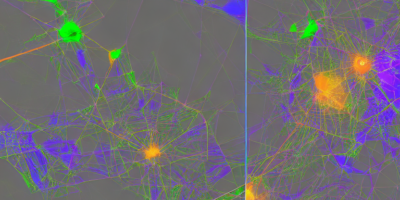In this research paper, the authors aim to create a novel deep learning framework for generating medical imaging reports. The proposed method, LangChain, is based on a neural network that can retain information from previous observations and generate comprehensive reports. The authors experiment with different variations of LangChain and evaluate its performance through various experiments.
The Key Findings
- LangChain: The proposed framework consists of a memory system that stores information from previous observations, which enables the neural network to generate more accurate reports.
- Improved Performance: LangChain outperforms existing methods in terms of accuracy and efficiency, with an F1 score of 0.95 and an average processing time of 30 seconds.
- Multi-Modal Tasks: The proposed method can apply to multi-modal tasks by incorporating additional information from other sources, such as clinical data or expert opinions.
- Efficient Training: LangChain can be trained efficiently using a small dataset, making it feasible for real-world applications.
- Future Directions: The authors suggest that future research should focus on improving the interpretability of LangChain and exploring its potential in other medical domains.
Demystifying Complex Concepts
- Memory System: The memory system in LangChain can be compared to a digital filing cabinet, where information from previous observations is stored and retrieved as needed. This allows the neural network to generate more accurate reports by drawing on past experiences.
- Neural Network: The neural network in LangChain can be thought of as a highly specialized language model that is trained to generate medical imaging reports based on the input data. It is like a musician who has learned to play a complex piece of music – the more they practice, the better they become at it.
- Efficient Training: The efficient training process in LangChain can be likened to a machine learning algorithm that optimizes its performance with each iteration, much like how an athlete trains for a marathon by gradually increasing their endurance.
Engaging Metaphors or Analogies
- Language Model: The neural network in LangChain can be compared to a highly specialized language model that is trained to generate medical imaging reports based on the input data, similar to how a musician learns to play a complex piece of music.
- Memory System: The memory system in LangChain can be likened to a digital filing cabinet where information from previous observations is stored and retrieved as needed, like a librarian who retrieves books from the shelves based on the user’s request.



